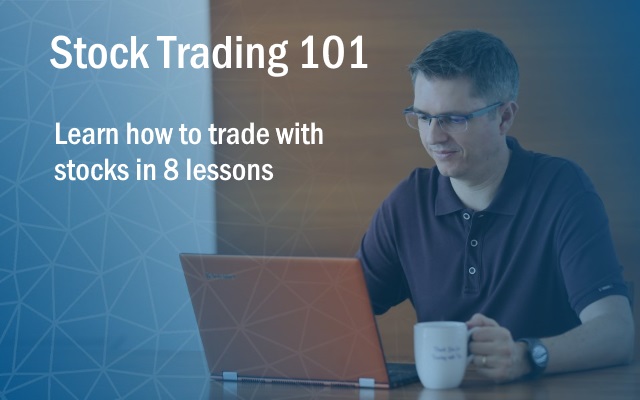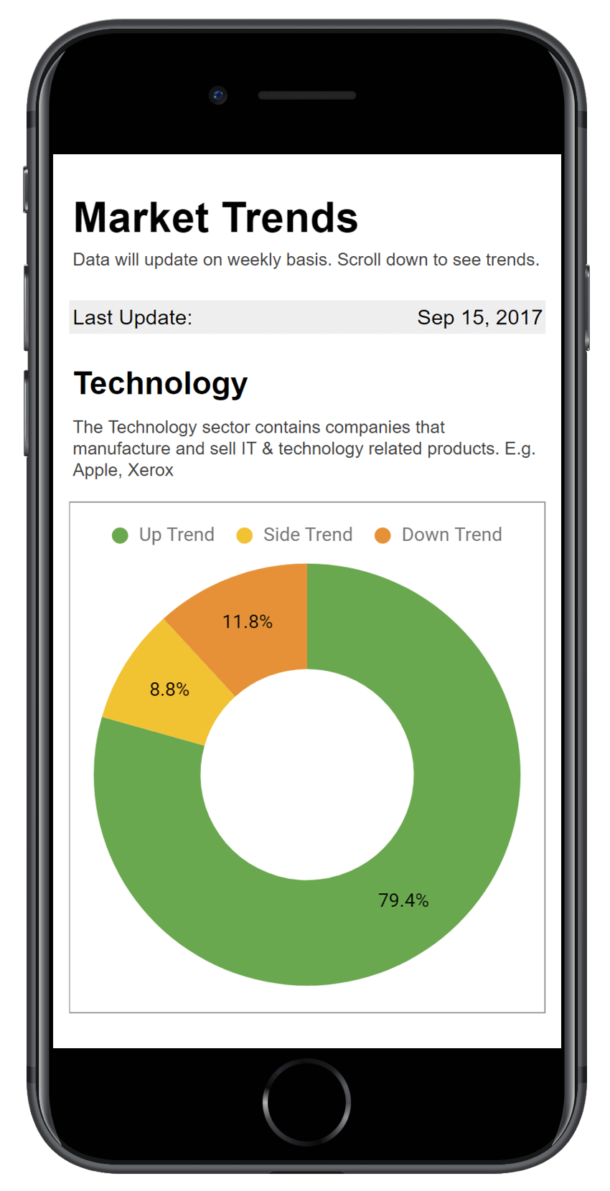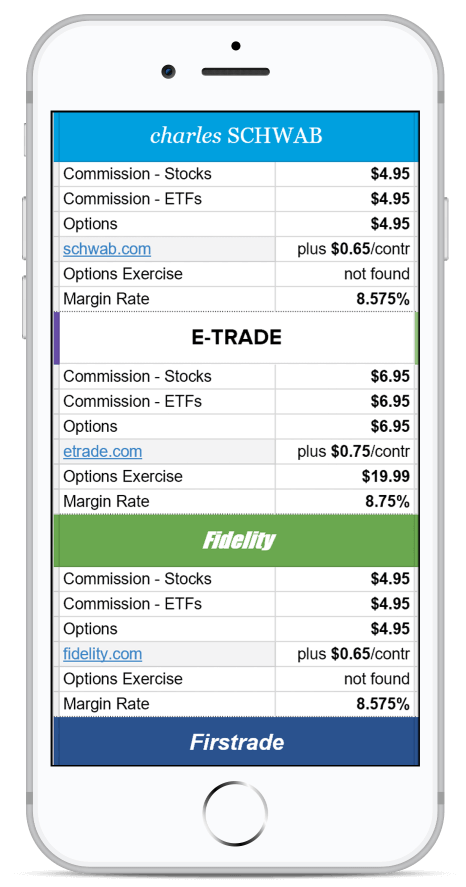Location Independent. Always Accessible. What Else Do I Love About Stocks?
Read this post later? Download the e-book!
Two things upfront about stock trading:
1) Disclosure: it’s my favorite type of investment. I try to be as objective as possible, but expect some bias 🙂
2) It’s a huge subject – this post can only be a brief overview!
So here we go…
As mentioned in my previous post, I became interested in stocks after my hunch about Apple stocks. Since then I spent a lot of time to learn more about using stocks as an investment vehicle. In a nutshell, it went like that:
- Being an engineer, I thought this is child play… started to trade stocks right away.
- Started losing money. I realized that I have no idea at all how that works.
- Stopped trading and started to study about stocks. Books, papers, websites, you name it.
- Developed my own trading strategy that fits my personality.
- Started trading again and never had a losing year since!
However, it was far from linear progress. It looked more like that:

So, if it’s so hard to do, why bother?
First of all… it’s like this with everything.
Whether learning a new sport, social skill or investing vehicle, progress will NEVER be linear. If there are no setbacks, then nothing new has been tried.
Second… it has an incredible upwards potential. Remember the value growth of Apple stocks from the previous post? I show it here again as a reminder.

And third… you can now learn it faster than I did by working through the 8 steps of my free Stock Trading 101 course. But more on that later.
Let’s have a closer look at what stocks are and what stock trading is about.
Quick Stock Trading Q&A
What are stocks anyway?
Stocks are, simply put, shares of a company that are traded on a market place (the stock exchange). Depending on supply and demand, stock prices change over time.
Why would I want to buy them?
Ideally you buy them at a low price and sell them some time later at a higher price. You can also keep them and earn money from dividends.
What are dividends?
It’s similar to an interest payment from your savings account and it is usually paid out quarterly.
But not all stocks have dividend payments. It’s up to the company to decide whether they give back some of their earnings to their shareholders via dividends, or if they rather invest the money to grow the company.
How can I buy and sell stocks?
By asking your broker to do so for you. A low cost solution is using an online brokerage.
How do I know if I am eligible?
Every adult can do so. Obviously you need money to invest.
How much money do I need?
It depends. You can start buying stocks with very small amounts already.
However, some techniques (e.g. short selling) can only be done with a margin account, which requires approximately 25,000 USD minimum funds.
Another consideration is trading costs. If they are large compared to the amount you invest then it makes not much sense to trade.
What’s the process to sign up for an online broker?
It’s usually straight forward: sign up, fill out the required documents and wait for approval for your account from the brokerage. You can find more details about that in this post.
Let’s cut to the chase: How do I get started?
Before opening a brokerage account or starting to trade, read through our free stock trading course. It will give you a good starting point.
What if I want to know more after I did the course?
I am working on a premium trading course that will provide in-depth procedures on how to create your own trading strategy and system – once available I will announce it.
If you do not want to miss on our updates, I recommend you to subscribe to our newsletter.
There are many books and other resources available, too.
What I Like About Stocks
Let’s talk about some of the advantages of stock trading as an investment.
Here are the top advantages:
- Accessibility
- Liquidity
- Flexibility & Control
- Diversification
Let’s go through each in more detail.
Advantage #1: Accessibility
No matter where you are in the world, as long as you have an Internet connection you can access your investment. No need to make any appointments, clear your calendar, drive anywhere, etc.
Found a hot new stock? Log on to your online broker, buy the stock, done. It’s incredible easy and convenient.
Don’t like to keep a stock? Log on, sell it, done.
Whether your job makes you travel a lot, or you are working in different countries frequently… no issue. You can now even do it from your smartphone!
Advantage #2: Liquidity
You can add funds or remove funds from your portfolio very fast.
Need some quick cash from your portfolio? Log on to your broker account, transfer funds to your current account, done.
Compare that to a simple savings account where you might need to give a notification period, then walk to the bank, fill the papers, do the transfer etc.
Or compare to having your money in real estate. How long would it take you to free some cash for other uses? To sell a property at a reasonable price might take several months, not to mention the fees and paperwork.
So if you prefer to move funds from your investment for other uses (like a spontaneous holiday) quickly and easily, then stocks are for you.
Advantage #3: Flexibility & Control
This is about how much you are in control of your investment. Stock trading allows you to adjust to changes in the market fast.
Do you want to invest more aggressively? Simply adjust your portfolio and your risk settings.
Do you feel the markets need a more conservative investment approach? Reshuffle your portfolio accordingly within a day.
Or do you know that you cannot work on your portfolio in the next couple of weeks? No problem. Let your trading system do the heavy lifting for you – automatically, every day.
What about a market reversal? Suddenly stocks are plumeting… so… change your strategy to a downtrend strategy (like short selling) and make money on the way down. Or sell and keep the cash ready for the next uptrend.
Advantage #4: Diversification
This is commonly used to reduce investment risks, along the idea to “not putting all eggs in one basket”. It’s a good idea to follow that concept.
So does it mean you need different investment types to do so? Not at all!
Let me explain.
Imagine you want to spread your investment between stocks of well known companies and real estate. You can either:
- Buy the stocks and also buy a property, or
- Buy the stocks and buy Real Estate related stocks (like ETFs), or Mutual Funds that invest in real estate.
That is a very powerful way to diversify with the comfort of using the same investment type. Do you think you should invest part of your investment in gold? Buy a gold fund. What about oil? Buy an oil ETF. You get the picture.
Now what about the Disadvantages?
So what are the main issues?
- Capital Risk
- Complexity
- Information Overload
- Trader Psychology
Disadvantage #1: Capital Risk
With trading shares, your capital is always at risk.
You invest, expecting that the share price will increase over time (and often it does), but it can also decrease and reduce the value of your portfolio.
This risk can be managed and limited with the proper risk management strategy (a very large topic by itself), but it will never go away entirely.
It is important to keep in mind that most investments have capital risk. If you buy a property, it can decrease in value. Or worst case, it could break down or the building developer could go bankrupt in the middle of the construction phase.
With stocks however you can see the ups and downs every day; that’s psychologically taxing.
Disadvantage #2: Complexity
It is said that there are as many trading strategies as there are traders – which is probably true.
You might read one book, promoting a certain strategy. And next week you read another book that promotes the opposite.
The advantages of stock trading – flexibility, control etc. – come at a price. There are ten thousands of stocks and mutual funds available. How to choose from the many possibilities can be daunting.
Disadvantage #3: Information Overload
Thanks to the Internet and TV it is possible to be up to date about everything, anytime. Novice traders often believe that the more they know about “the market”, the better are their chances of success.
And they spend a great amount of their time retrieving and processing large amounts of information, leading them quite often into analysis paralysis.
Instead, it is better to accumulate just a certain amount of information and then make your decision and move on. But it is not easy to accept for beginners.
Disadvantage #4: Trader Psychology
Would you walk into a surgery room and start operating on a patient without going to medical school?
I certainly would not. But it is what many novice traders do – and it usually turns into a very costly experience for them. While lives are not at stake in the investment game, it requires more than just a certain skill set.
It means also mastering yourself.
Your emotions and other factors of human psychology. Biases that make us human but cause trouble when trading. It takes time and practice to overcome this – and it is often underestimated.
So what’s next?
Stock trading can be extremely rewarding.
With proper risk measures in place you can limit and control your investment risk – maybe better than with other investment types. But it needs preparation, discipline and dedication to go from novice to experienced investor.
If you want to know more about stock trading, I recommend to do this:
- Start the Stock Trading 101 course.
- Once available, improve further by using the Slash Formula (reduce your risks).
- Later, join a premium Trading Specialization Course.
Also read on about other investment types and make your decision what to invest in (remember not to go down the analysis-paralysis road).
Get Updates!
Browse by Topics
What to Invest In
Make the most out of investing by starting early.
Stock Trading 101
From Novice to Profitable Investor in 8 simple steps.
Reduce your Risks
Dramatically improve your trading performance with the Slash Formula.
Download this post as PDF:
Click on the image or button below to get the files.
JOIN OUR FREE NEWSLETTER
Get the latest trading techniques right into your inbox.











0 Comments